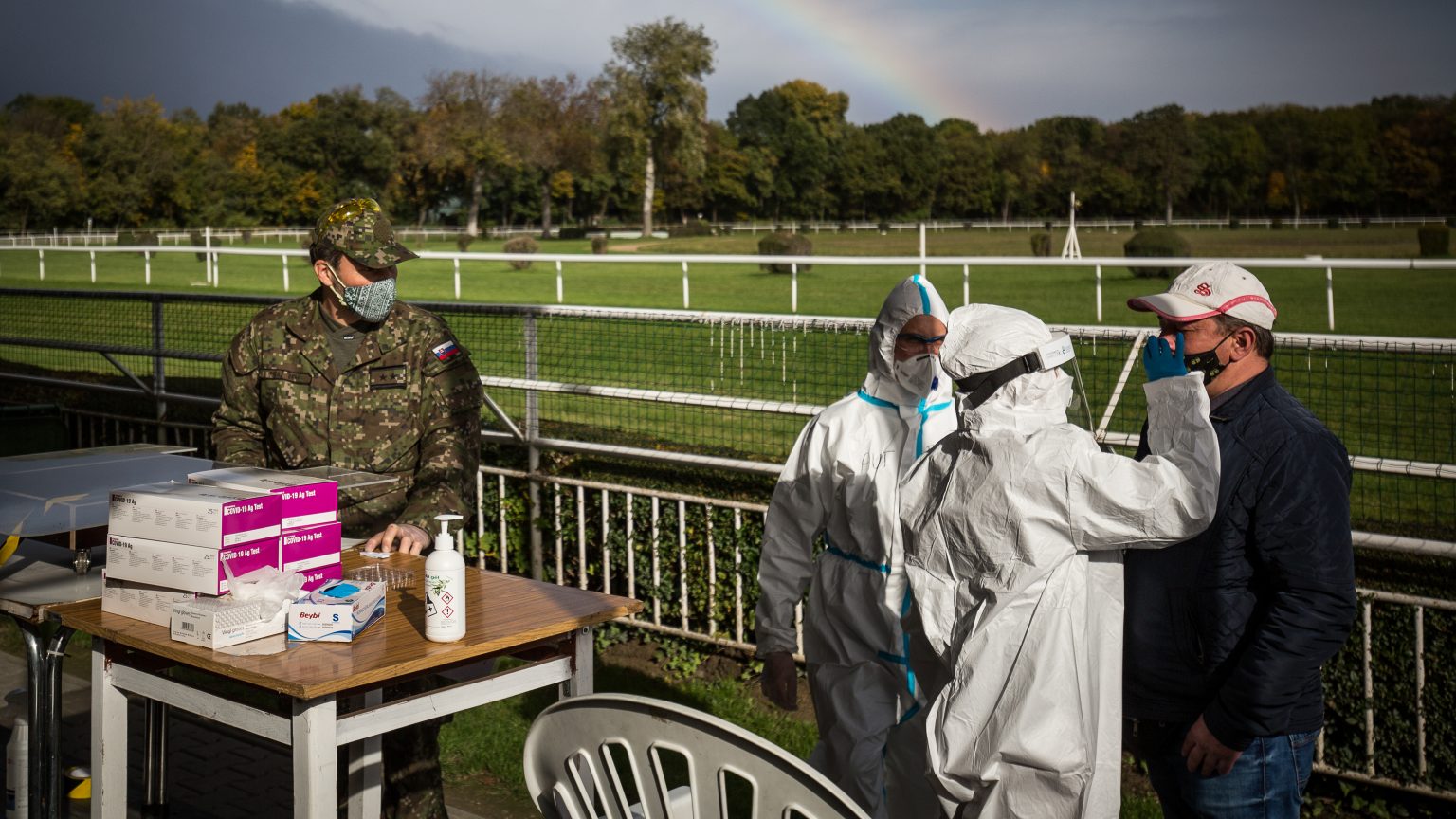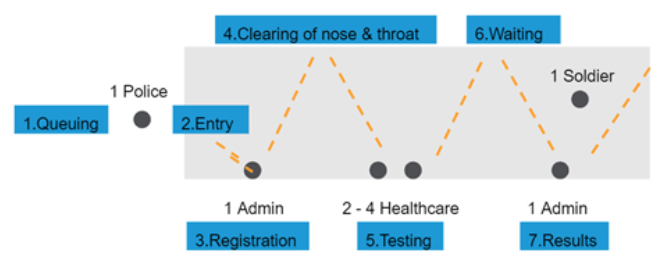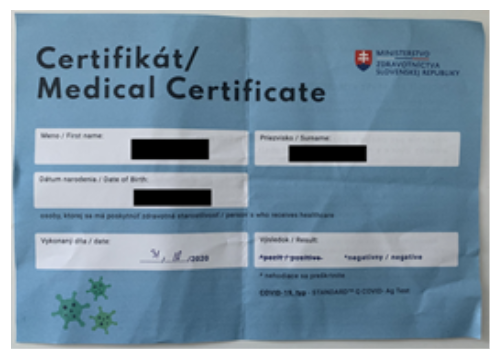Slovakia performs rapid antigen tests on the majority of the population for two weekends
- After conducting the same test last weekend, on 31 October and on 1 November, against two thirds of the population, Slovakia carried out the same test in the second round last Saturday, 7 November. Thousands of military personnel, officials, health personnel and volunteers have been involved in the operation, which the Government has prepared in a hurry for 15 days. In Slovakia, with the containment in force, citizens who have tested negative on rapid tests have been given the document to go out into the street and those who have tested positive as those who have not wanted to participate will remain in lockdown for another fifteen days.

Not being a fashionable country, few have settled in Slovakia for their success in managing COVID-19. And it cannot be denied that it was successful in the first wave, it had one of the lowest mortality rates in Europe (and continues to do so, as confirmed by Worldometers statistics). From the outset, the Slovak Government took drastic measures, for example, was one of the first to force the use of kisses in Europe in spring.
However, the autumn wave has also hit Slovakia, despite the fact that, once again, it has suffered very few deaths compared to other countries around it. The comparison can be seen very clearly in the numbers offered by ECDC on 8 November, in which the deaths of 100,000 inhabitants in the previous 14 days were 3.5 in Slovakia, while in their twin country, the Czech Republic, 24.5, Hungary 10.4, Poland 8.7, Romania 7.6... compared to us, in Spain 8.7 and in France 8.2.
However, Prime Minister Igor Matovic proposed in October to the government to carry out rapid tests of antigens throughout the country in one or two blows. He informed the public of the rules of the game: after the confinement decreed by the Government on 24 October, Slovaks could participate in a voluntary global test, while opponents of the 15-minute quick test to be carried out during weekend holidays would be given the document of freedom of confinement and, on the contrary, both positive and resigned would remain confined. Both children under 10 years of age and those over 65 years of age or living in conditions of special vulnerability would be excluded from the general test.
Slovakia’s mass testing programme has helped cases of COVID-19 fall by 55 percent in some of the country’s worst affected areas. 🇸🇰 UK and German government officials have now ed the country to see if they can implement the same system. Read more 👉 https://t.co/Ubvhim0J71 pic.twitter.com/DyEKLcXQx6
— CGTN Europe (@CGTNEurope) November 8, 2020
After 15 days of preparation, and whether or not they could take the challenge up to the last hour, most of the testing was carried out last weekend: on 31 October and 1 November, 3.6 million citizens, two thirds of the population, were tested, among whom 38,000 were found to be positive (15 times more than the cases that Slovakia finds in one day for CPA).
The same recognition took place last Saturday, November 7, in the second batch, half a million more people. Both people from specific regions who showed high levels of pollution in the first shift and volunteers who want to participate in regions with very low levels of pollution were invited. According to the authorities, over 553,000 citizens participated last Saturday, of whom 3,677 were positive. Prime Minister Matovic said at the end: "If everyone agrees that we need more freedom, that we want open theatres, churches... we now know that we also have this tool [to control the epidemic]."

Kristina Londakova has given in her blog some very interesting details of this national test, which has not been given the impact it deserves in the major media. London, of Slovak origin, serves as a health advisor in the United Kingdom. In the news "How Slovakia tested 3.6 million people for COVID-19 in a Single weekend" he highlighted the following features:
- The combination of new and old technologies is the key to progress. On the one hand, antigen tests created with very advanced technology have been used, but at the same time the results have been written manually in the papers. The participants collected the result (and the license to move in the street was negative) on paper. Combining paper and digital is the way to avoid major technical problems.
- It's a huge logistical effort. In Slovakia, preparations have been carried out for 17 days, involving more than 40,000 workers, including 15,000 health workers, 8,000 military personnel and officials, municipal officials... The tests were carried out in 5,000 areas, in each of them several test tables, prepared to perform 35 tests per hour, in two days 1,000... Between 6 and 8 people worked at each test table: one military head, one police officer, two government volunteers and 2-4 health professionals, including medical students. Here is a sketch of one of the posts offered by Londakova:

"Slovakia," says Londakova, established a strict lockdown last week of October, leaving people out of the house to work and do basic shopping. It was the stick. And the carrot has been the government's offer to participate in the massive testing, thus offering people a solution to avoid confinement; the people who gave negative on the weekend have been allowed to leave the house to work but also to go to the accommodations (which still serve only outside), fulfilling the rest of the measures. Those who cannot demonstrate certified negativity must remain confined until the second weekend test or until mid-November."























